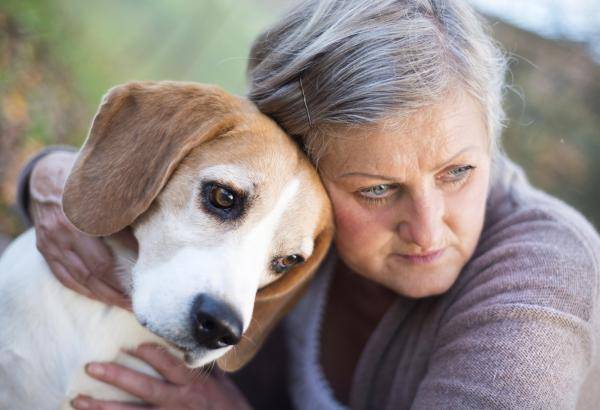During the different stages of a dog or cat's life, the animal's nutritional needs change. In order to meet these needs, it is important to adjust the diet accordingly. The key to ageing is to adapt the diet to these needs, so that the body continues to function smoothly and the animal can maintain an active lifestyle.
As animals age, body cells degenerate and their metabolism changes. Visible signs of ageing manifest themselves in poor coats, muscle weakness, reduced muscle tissue, increased fat storage, decreased stamina, decreased mobility due to joint and bone problems, decreased cognitive and visual processing in the brain. In addition, we know that the efficiency and functionality of the immune system, kidneys, heart and blood vessels and the digestive system can deteriorate.
How fast animals age varies and depends on genetics, nutrition and the environment in which the animal lives. Dogs are generally considered 'senior' from 7 years old, and cats from 10 years old. It also depends on the animal's size. A Great Dane, for example, is considered senior from 5 or 6 years of age, given this breed's short lifespan.
Focusing on older animals' health through nutrition is an attractive premise for pet owners.
Pet owners are very keen to invest in their pets' health because they see pets as members of the family. Costs for veterinary care can run high, and, as a result, pet owners look for alternatives to support their ageing animal and reduce the risk of age-related symptoms.
Research by DSM has shown that dog owners understand the value of administering (optimal) nutritional supplements for their older animal (these numbers are expected to be similar among cat owners). For example:
81% of participants agreed that vitamins E, C and β-carotene would support their dog's immune system.
79% of participants agreed that a diet enriched with DHA omega-3 would help to maintain the animal's memory and support vision.
79% of participants agreed that it is important to maintain their dog's activity as they age.
The latter point encourages the need for functional food. Worldwide studies conducted by DSM among dog owners have shown that products using the concept of senior agility are among the highest-scoring in terms of product purchasing, credibility and uniqueness.
Because an appropriate diet for older animals can influence the development of ageing disorders, it is important to provide the right nutrition in order to improve your animal's quality of life. With the right food, animals can lead a longer active life. To formulate the correct diet, you could consider adding certain amino acids, fats, fibre, minerals and vitamins, as well as certain antioxidants and nutraceuticals, for example. We will discuss some examples below.
The following additives can offer support as dogs and cats get older:
Mental agility – DHAgold®: DHA (docosahexaenoic acid), an omega-3 fatty acid derived from a sea algae which can have a beneficial effect on the brain of older animals and help to maintain vision and memory.
Physical agility – L-carnitine and B vitamins that help with fat, protein, and carbohydrate metabolism, for active and optimal movement and good overall condition of the animal. Glucosamine can be added for joint health* and vitamin D to maintain bone health so that dogs and cats can stay active longer (*functional claims about glucosamine and other nutrients may be limited in some countries).
Resistance and cellular vitality – adding antioxidants such as vitamins C, E and β-carotene can support and enhance cellular systems and natural immune systems.
Coat vitality – biotin supports the continuous growth and recovery of coat and skin. Optimal levels of biotin are needed for a bright, shiny and soft coat and support during the normal moulting period.
When formulating a diet, it is also important to take the production and storage losses of additives in the diet into account. That is why an excess is usually added, to prevent deficiencies in the diet.
Nutritional support is a good way to improve or even extend ageing animals' quality of life. Making full use of all functional ingredients to optimise body function is recommended to maintain the well-being and good health of senior pets.


